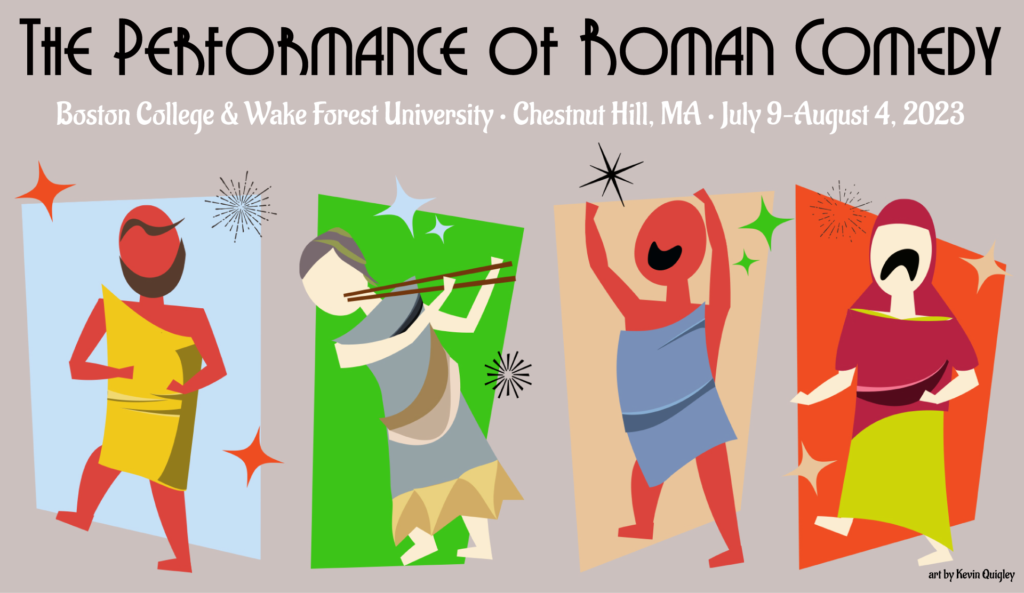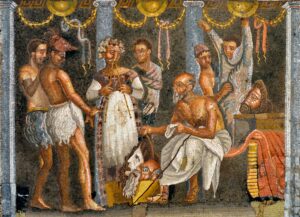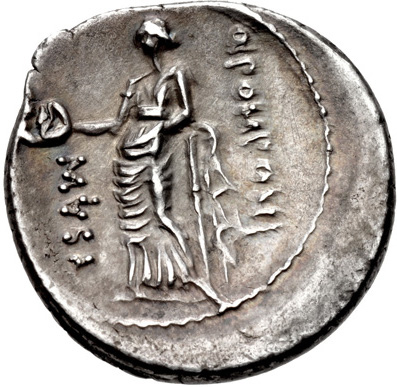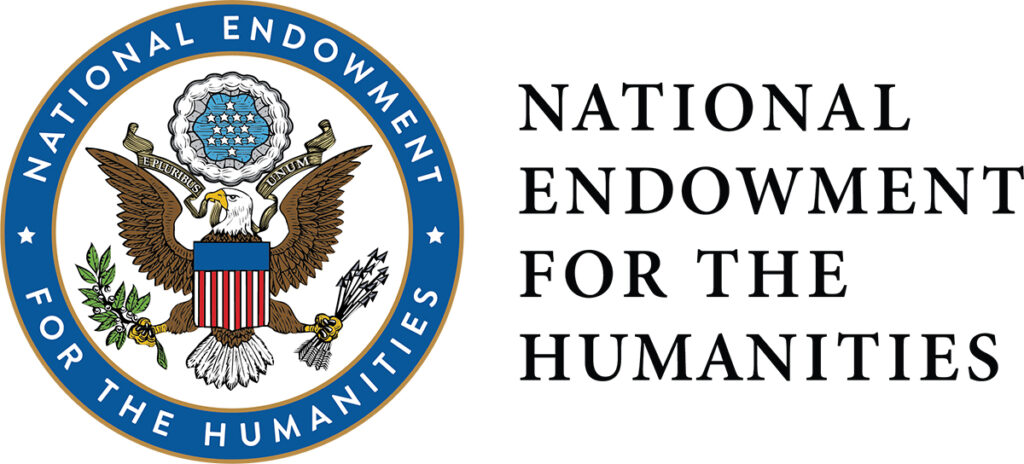
The Performance of Roman Comedy
NEH Institute for Higher Education Faculty
July 9–August 4, 2023
in person at Boston College (Chestnut Hill, MA)
Co-directors:
- T. H. M. Gellar-Goad, Wake Forest University
- Christopher B. Polt, Boston College
Check out the publications of the Institute — including videos of scenes from ancient comedy, annotated bibliographies, pedagogical guides, and a blog — at our PubPub site!
Roman comedy is one of the primary and oldest forms of theater that ancient Romans produced and watched. Nevertheless, all that survives of Roman comedy are its scripts, mere dialogue with no blocking or stage directions. This fact has often resulted in the genre’s being treated as purely textual or entirely ignored in classroom settings. The past few decades, however, have seen the publication of an abundance of scholarship that focuses on the performative nature and performance contexts of Roman comedy. We are now in a position to bring these texts to life, to promote the teaching of them at the college level and beyond, and, in doing so, to illuminate why and how they are so significant for understanding the meaning, comic and dramatic traditions, and cultures of both the ancient world and our own.

“Actors and Musicians” by minifig is licensed under CC BY-NC-SA 2.0 .
Over the course of four weeks in summer 2023, and under the instruction of visiting experts representing three generations of scholarly excellence and a wide variety of research specialties, participants in this Institute studied ancient evidence for and modern experiments in the performance of these plays; the social, historical, and literary contexts of the plays; and their continuing significance and influence. Participants put their instruction to use by staging and filming scenes from Roman comedy in multiple styles, as well as developing pedagogical modules and research guides to apply and share what they learned from the Institute. Participants in the Institute came away with an expert handle on cutting-edge scholarship on Roman comedy, with extensive hands-on experience in bringing Roman comedy to life, and with profound effects on their own scholarship and teaching.
The Institute took place on the campus of Boston College, situated in a vibrant, culturally energetic metro area. Participants were able to take advantage of an active arts scene and calendar, including world-class museums such as the Museum of Fine Arts and the Isabella Stewart Gardner Museum.
Institute activities

- Everyone did extensive reading of the plays of Plautus and Terence, as well as scholarship on them, in preparation for the Institute. We had daily readings in advance of the morning sessions. See the readings page for more details.
- The morning sessions were seminars and workshops led by a series of visiting experts on various areas and topics related to Roman comedy. See the schedule page for more details.
- In the afternoons, participants broke into groups to work on adapting, rehearsing, and ultimately filming performances of specific scenes from Roman comedy. Each participant was part of an ensemble scene and a smaller scene. See the scenes page for more details.
- In each of two scene groups, participants also collaborated with group members to develop scholarly and pedagogical materials that support research and teaching with the video of your performance: program notes to explain the content, context, adaptation decisions, and staging choices of the video; an annotated bibliography of scholarship pertaining to the specific scene; and a teaching module and lesson plan for putting the scene to use in the classroom. All of these pedagogical materials will be hosted on this website in perpetuity.
Support for participants
Each participant received a stipend of $3,450 (this was taxable income), intended to cover the cost of travel, lodging, meals, and incidentals. The co-directors arranged arranged for reasonably priced lodging for participants on the campus of Boston University, a short trip on public transit from Boston College, where all Institute activities took place. See the housing page for more details.
Participant expectations

“File:Muse Thalia, Denarius, 56 B.C., Rome.jpg” by Quintus Pomponius Musa is licensed under CC BY-SA 3.0 .
- Participants were required to submit a project evaluation.
- Project applicants who accepted an offer to participate were expected to remain during the entire period of the program and to participate in its work on a full-time basis. If a participant was obliged through special circumstances to depart before the end of the program, it was be the recipient institution’s responsibility to see that only a pro rata share of the stipend was received or that the appropriate pro rata share of the stipend was returned if the participant had already received the full stipend.
- Once an applicant accepted an offer to attend any NEH Summer Program (Seminar, Institute, or Landmark), they were not allowed to accept an additional offer or withdraw in order to accept a different offer.
The Performance of Roman Comedy has been made possible by a major grant from the National Endowment for the Humanities: Democracy demands wisdom.

Any views, findings, conclusions, or recommendations expressed in this program do not necessarily represent those of the National Endowment for the Humanities.
